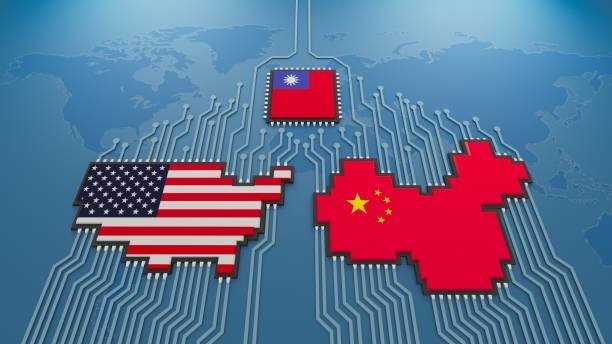China has intensified the ongoing trade war with the United States by banning the export of critical minerals such as gallium, germanium, and antimony. Announced by China’s Ministry of Commerce, this move is a direct response to Washington’s increasing restrictions on Beijing’s semiconductor industry. The ban targets materials vital to technology and military applications, threatening global supply chains for semiconductors and electric vehicles. With both nations leveraging economic dependencies as strategic tools, the escalating tension marks a critical point in their trade relations, setting the stage for deeper global implications.
1. Beijing Strikes Back With Mineral Export Ban
China’s Ministry of Commerce revealed the ban on Tuesday, targeting materials essential for technology and military applications. The move not only heightens trade tensions but also showcases Beijing’s strategic leverage in critical mineral supplies, particularly as the US prepares for potential shifts in political leadership with Donald Trump’s anticipated return.
2. Focus on Strategic Materials
The newly imposed restrictions focus on materials categorized as “dual-use items,” crucial for both civilian and military technologies. Gallium, germanium, and antimony exports have been banned outright, while graphite shipments to the US will face stringent scrutiny regarding their final use and recipients.
3. China’s Dominance in Global Supply Chains
China’s grip on the global supply of critical minerals strengthens its position in the trade war. It accounts for 94% of the world’s gallium and 83% of germanium—key elements for semiconductors, fiber optics, and solar technology. According to Beijing, the export restrictions aim to protect national security and uphold non-proliferation commitments.
4. Retaliation Follows US Export Controls
China’s export ban comes as a direct response to the United States’ sweeping export controls targeting 140 Chinese companies, including major chipmakers like Naura Technology Group and Piotech. These measures are part of Washington’s broader strategy to curb Beijing’s advancements in the semiconductor industry.
5. US Expands Restrictions on Chinese Tech Sector
The US recently tightened its grip by banning sales of high-bandwidth memory chips essential for artificial intelligence and restricting access to advanced chipmaking tools from allies like Japan and the Netherlands. This marks Washington’s third wave of controls targeting China’s tech sector in recent years.
6. China Slams US Policies
Beijing criticized Washington’s restrictions as “unilateral bullying practices” and accused the US of misusing export control measures under the guise of national security. In a strong rebuttal, China’s Ministry of Commerce stated that the US “says one thing but does another,” condemning its overreach in defining security concerns.
7. A Calculated Warning to the US
Trade analysts suggest that China’s move serves as a calculated warning about vulnerabilities in US supply chains. Wang Yiwei, a leading expert, noted that these restrictions could significantly disrupt the US defense and technology sectors, further exposing their dependence on Chinese raw materials.
8. Ripple Effects on Industries
The ban is expected to have widespread implications. Restrictions on gallium and germanium may disrupt semiconductor manufacturing, while limits on graphite exports could impact battery production for electric vehicles and fuel cells. These disruptions may lead to higher costs and delays across multiple industries.
9. Early Signs of Disruption
The effects of China’s earlier restrictions are already visible. Antimony shipments, essential for energy and military applications, dropped by 97% in October. Despite these measures, China remains the dominant supplier of germanium and gallium, underscoring its influence in global markets.
10. A Turning Point in Trade Relations
The escalation in the US-China trade war highlights the growing strategic competition between the two nations. As both sides continue to weaponize economic dependencies, the global economy braces for potential disruptions in supply chains for critical technologies. Whether diplomatic efforts can ease tensions remains uncertain, but the current trajectory points to prolonged economic and geopolitical conflict.







